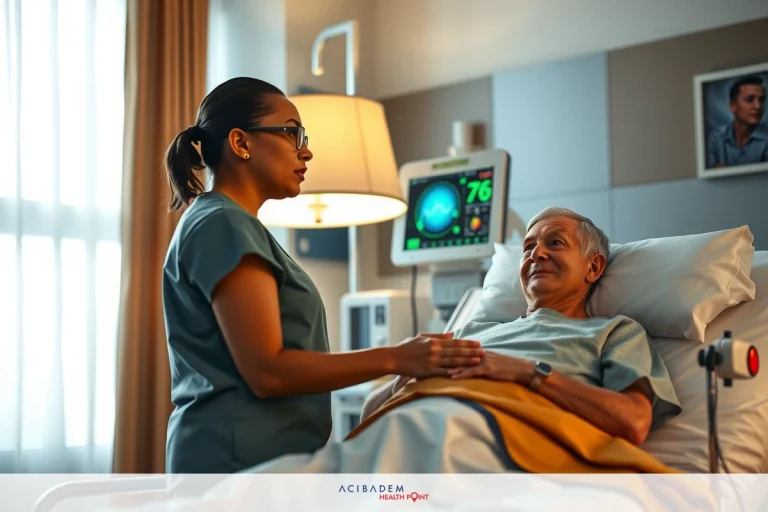Can I Take Anti-nausea Medication During Car T Cell Therapy?
Can I Take Anti-nausea Medication During Car T Cell Therapy? CAR T-cell therapy is a treatment used for some cancers. It uses the body’s own cells to fight the disease. This can lead to great results but also comes with side effects. One common issue patients face is nausea. Taking anti-nausea medication might help manage this problem.
Feeling sick can be tough especially when you are already dealing with cancer treatment. There are medicines that could make it easier for you during this time. Talking with your doctor about these options is important. They will know which medications are safe and effective for you.
Doctors and medical teams always aim to give the best care possible during treatments like CAR T-cell therapy. Anti-nausea drugs may offer relief from one of its uncomfortable side effects if prescribed by a professional who understands your case well.
What is CAR T-cell Therapy?
CAR T-cell therapy is a cancer treatment that uses the body’s own immune system. The process starts by taking T-cells from the patient’s blood. These cells are then changed in a lab to better fight cancer cells. After this they are put back into the patient’s body. This can help target and kill cancer more effectively.
The main goal of CAR T-cell therapy is to improve how well the immune system fights cancer. It has shown great results for some types of cancers such as certain leukemias and lymphomas. This therapy offers new hope where other treatments might not work as well. It’s an innovative approach that changes how we think about fighting cancer.
This type of treatment can also have side effects like nausea or fever. Anti-nausea medication may be used to help manage these symptoms during your CAR T-cell treatment. Always consult with your doctor before starting any medication during therapy sessions.
Doctors monitor patients closely during CAR T-cell therapy to ensure safety and effectiveness. They will guide you on what medications are safe to use if you feel sick or have other issues come up while undergoing this advanced form of treatment.
Common Side Effects of CAR T-cell Therapy
CAR T-cell therapy can lead to several side effects. One common reaction is cytokine release syndrome which may cause fever and chills. Patients might also experience low blood pressure or trouble breathing. These symptoms usually occur soon after the treatment starts. Doctors will closely monitor for these reactions.
Another side effect patients may face is neurological problems. This could include confusion, trouble speaking, or memory issues. These side effects are often temporary but can be alarming. Prompt medical attention helps in managing these symptoms effectively during your CAR T-cell treatment.
Nausea and fatigue are other common issues during this therapy as well. Anti-nausea medication can help manage feelings of sickness that some patients experience. Fatigue might make simple tasks more tiring than usual; rest becomes essential at this time.
Lastly there might be a drop in blood cell counts due to the treatment’s impact on bone marrow function. This could result in anemia or a higher risk of infections from low white cells count levels too! Regular check-ups ensure any such conditions get addressed promptly by healthcare professionals skilled with CAR T-cell therapies.
Role of Anti-Nausea Medication
Anti-nausea medication plays a key role during CAR T-cell therapy. These medications help control the feeling of sickness that some patients face. By reducing nausea they improve comfort and well-being. This makes it easier to undergo treatment sessions without excessive discomfort.
Taking anti-nausea medication can also lead to better overall outcomes. When you feel less sick you are more likely to eat and drink enough. Proper nutrition is vital during any cancer treatment including CAR T-cell therapy. Staying hydrated and nourished helps your body fight the disease more effectively.
Your healthcare team will guide you on which anti-nausea drugs are safe for your specific case. They consider many factors before recommending any medication during therapy ensuring it complements your entire treatment plan safely and effectively! Always consult with them before starting or stopping any new medication.

Consulting Your Doctor
Talking with your doctor is crucial when considering anti-nausea medication during CAR T-cell therapy. They have the expertise to guide you safely through this process. Each patient’s case is unique so personalized advice is essential. Your doctor will consider all factors before recommending any medication during therapy.
Doctors can provide valuable insights into which anti-nausea medications are most effective for you. Some drugs may not be suitable due to interactions with other treatments or conditions. Only a healthcare professional can make these determinations accurately and safely.
Your medical history plays a significant role in choosing the right anti-nausea medication. Conditions like allergies or previous reactions must be taken into account ensuring safety at every step of your CAR T-cell treatment journey.
Regular check-ups allow doctors to monitor how well the anti-nausea medication works for you. Adjustments might be needed based on your response and any side effects experienced. Consistent communication ensures optimal care throughout your treatment period.
Always report any new symptoms or concerns promptly to your healthcare team. Early intervention can prevent minor issues from becoming serious complications while undergoing CAR T-cell therapy!
Frequently Asked Questions
Q: Can I take anti-nausea medication before starting CAR T-cell therapy?
A: You should consult your doctor before taking any medication. They will guide you on the best time to start anti-nausea drugs during your treatment.
Q: Are there side effects of using anti-nausea medication with CAR T-cell therapy?
A: Some patients might experience mild side effects like drowsiness or dry mouth. Your healthcare team will monitor for any adverse reactions and adjust medications as needed.
Q: How effective are anti-nausea medications during CAR T-cell therapy?
A: Anti-nausea medications can significantly reduce discomfort for many patients making it easier to complete their treatment plan effectively. Effectiveness varies from person to person so ongoing consultation with your doctor is important.








